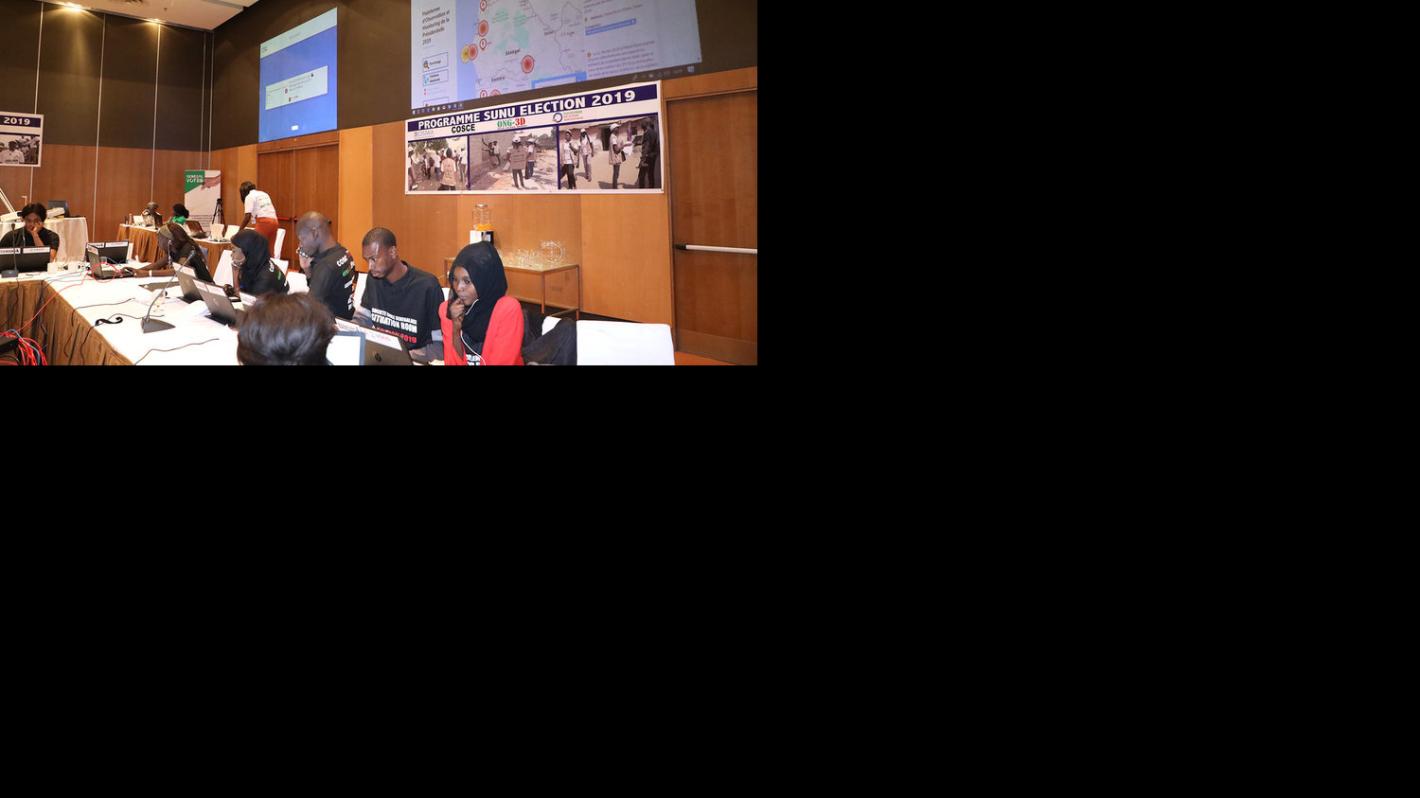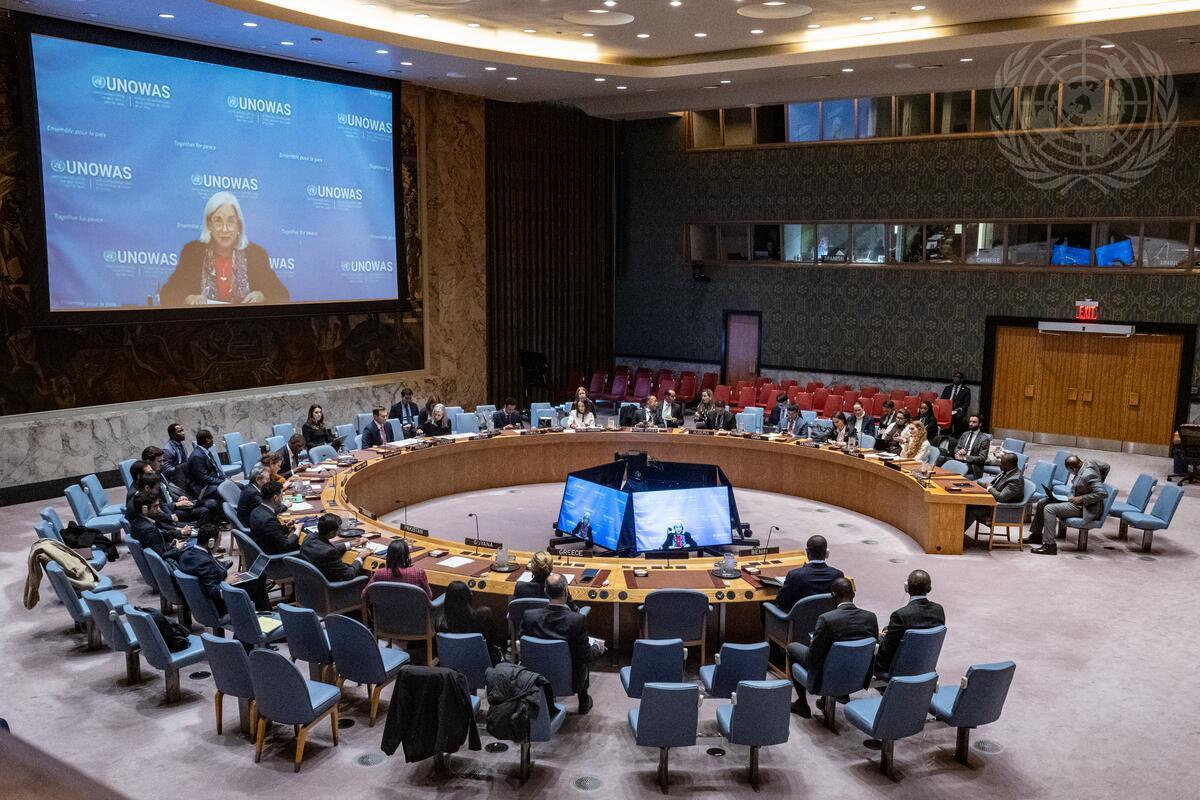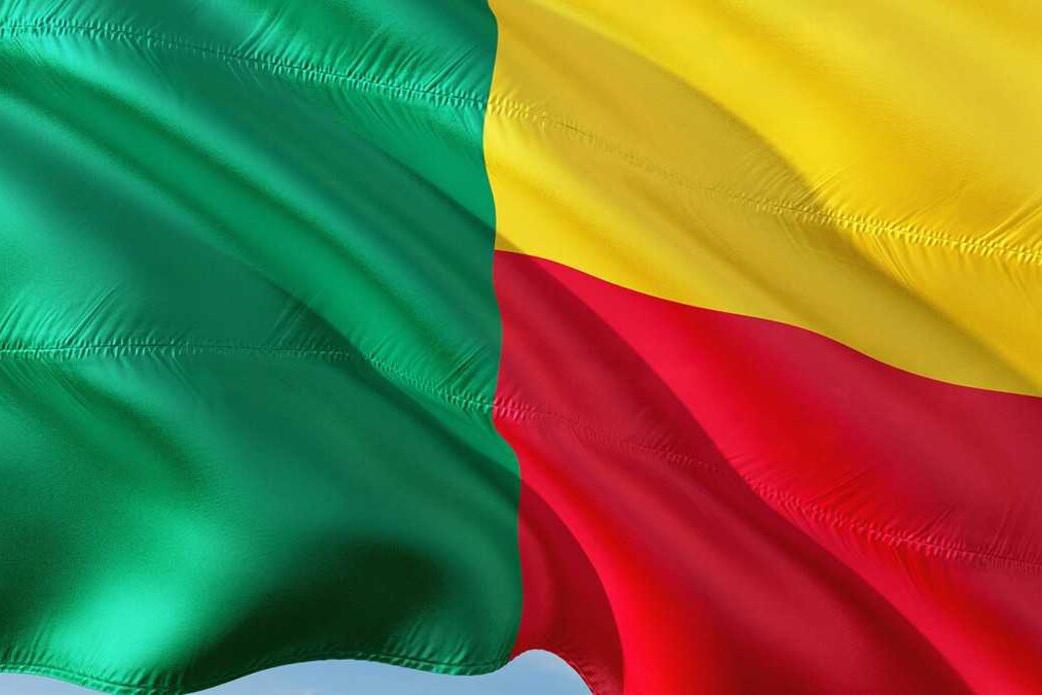Some Senegalese citizens did not only vote in the presidential election, but they wanted to wear the observer’s cap to help organize a peaceful election, thus contributing to the consolidation of democracy in Senegal.
On 24 February, the day of the presidential election in Senegal, the streets of Dakar are calm. A good-natured atmosphere reigns around the polling centres, which spontaneously transforms into meeting places for neighbours and friends who have not seen each other for a long time. Groups were formed and the vote was discussed. In the mouths, the main question keeps coming up: “Have you already voted? ».
At midday, long queues form as people arrive in front of the polling stations in the centre of HLM 6. In one of the offices, two young men, Moussa Sy and Birima Ngom, dressed in light grey vests, broke in and asked to meet the president. After greetings, they present their accreditation card issued by the Ministry of the Interior before inquiring about the voting process and the arrangements that have been made to enable citizens to vote under the required conditions.
4,100 Senegalese observers
Moussa Sy and Birima Ngom, are young volunteers from the Sunu Election programme (our election). They are among the 4,100 Senegalese observers deployed throughout the country by the civil society to ensure transparency, credibility of the election and civic participation. For that purpose, the two volunteers must visit a number of polling stations in order to record all kinds of information on the process, that they will then send to the technical service of the electoral monitoring unit responsible for compiling and processing the first field data that provides an indication on the quality of the voting process.
In Senegal, the civil society was heavily involved in the electoral process through its work as observer, sensitizer and facilitator. Thus, several citizen actions have been initiated. These activities range from raising awareness for a widespread participation in voting, election observation to the facilitation in order to correct possible dysfunctions related to the vote process.
In a room of a local hotel, a group of women and young people analyze the data gathered from the field. We are in the electoral monitoring unit of the Women, Youth, Peace and Security in West Africa and the Sahel Working Group, set up with the financial support of the United Nations Office for West Africa and the Sahel (UNOWAS) and UN Women. The working group deployed 50 observers accross the national territory who visited 971 polling stations with the objective of collecting information on women’s participation.
Just next door, another much larger room is crowded with people, it houses the Sunu Election program watch cell, in partnership with the Gorée Institute, which is responsible for monitoring electoral violence, and the Senegal Vote program, which is responsible for monitoring on social networks. Despite the comings and goings of international observers, in particular ECOWAS and the European Union, who come to obtain the latest information on the conduct of the vote, a serene working atmosphere prevails in this room.
Massive engagement of young people
For me, voting is a civic act and participating in such a civil society initiative that promotes participatory and peaceful elections is important,” says Albert Kaly, a young volunteer. Sitting in front of his computer, Mr. Kaly carefully records the information received by telephone from the field on the platform used to process the data received from some 2,000 observers deployed throughout Senegal by the Sunu Election program. There are 25 young people, like Mr. Kaly, assigned to the technical component of the electoral monitoring structure.
These data collected and processed are then sent to a political cell made up of personalities and civil society leaders. After a much more in-depth analysis, the members of the political cell report to the authorities the dysfunctions detected for rapid correction. This was how they were able to alert to the issue of voters who could not find their names on the voters’ lists.
The objective of the Sunu Election program is to create the conditions for Senegalese people to familiarize themselves with the different procedures of the electoral process
The Sunu Election programme was set up by the Collective of Civil Society Organisations for Elections (COSCE) and the Platform of Non-State Actors. “The objective of the Sunu Election program is to create the conditions for Senegalese people to familiarize themselves with the different procedures of the electoral process. And, encourage them to express their will while ensuring that the elections are held in a transparent and peaceful manner,” said Ndiaga Sylla, Head of Elections for the programme. “That’s why, through the Sama baat (my voice) campaign, we have deployed long-term observers over the past three months, who have contributed to the massive withdrawal of voter cards,” explains Mr. Sylla.
Similar initiatives for a massive and quality mobilization have been carried out by other structures. Senegal Vote, for example, wanted to play its part on social networks. “On our Senegal Vote platform, we have a map that provides information on polling centres and stations, a voter’s guide and a showcase for candidates who wanted to share the different axes of their programmes,” says Ms Jaly Badiane, Coordinator of the initiative. “It is a way of informing citizens about the content of the various candidates’ programs and raising awareness about one of the major issues of citizenship, which is voting,” she added.
All these initiatives have contributed in one way or another to strengthening democracy in Senegal through the mobilization of citizens for peaceful and participatory elections.






